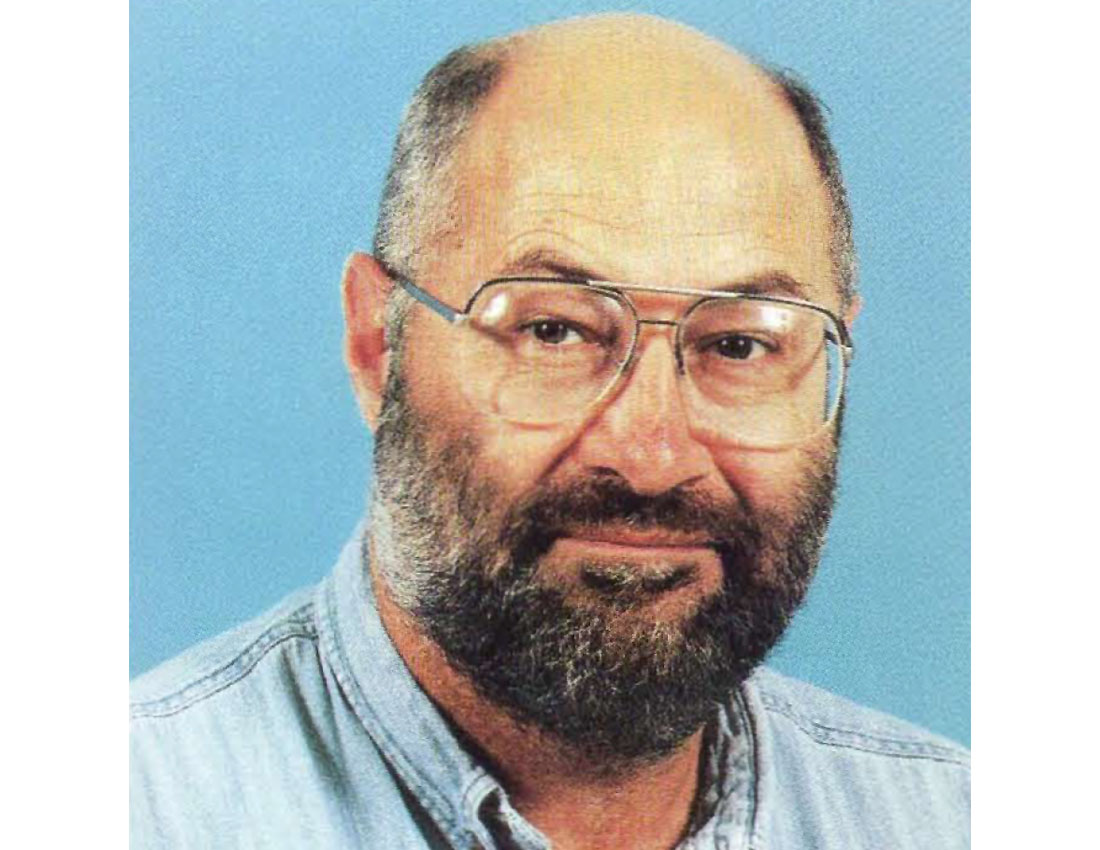Reprinted with permission of the University of Calgary Gazette. First published December 15, 1997. Story by Jacqueline Louie, a Calgary freelance writer.

Larry Lines brings an international reputation in applied seismology to the University of Calgary's Department of Geology and Geophysics.
And that can only benefit the U of C.
Lines, the new Chair in Exploration Geophysics, is active in a variety of roles spanning research, teaching and publishing. He is editor of the Geophysics journal for the Society of Exploration Geophysicists (SEG), the premiere journal of the 15,000 member international organization. Lines is the journal's first editor based outside the United States.
"I think it gives us Visibility and further builds our reputation for technical excellence, which will help us attract graduate students," says Don Lawton, who heads the Department of Geology and Geophysics. "It's adding to the strength and breadth of our geophysics program."
Lines joined the department in September and started his duties as Geophysics editor in November. In this role, Lines is not only editor, but also educator. He wants to publish tutorial papers because he wants to bring an educational dimension to Geophysics.
"I think there's a real need for that," he says, explaining that most SEG members are not researchers but practitioners of geophysical interpretation. Many articles are somewhat specialized and a common complaint from SEG members is they don't understand a lot of what they read.
"What I'd love to have are readable articles," Lines says with a laugh, adding he does not want to dilute the journal's research focus.
Editing Geophysics is just one of several roles the personable geophysics professor is balancing. He is an associate director of the CREWES project (Consortium for Research in Elastic Wave Exploration Seismology). He is involved in the Foothills Research Project imaging geological structures in the foothills, and in MUSIC (Memorial University Seismic Imaging Consortium), which he helped found. And he will teach one course each semester.
"I see the U of C as the premiere institution for exploration geoscience in Canada," Lines says. "It's really the place to be."
Originally from Athabasca, the 48 year-old Lines moved back to Alberta after a four-year stint in Newfoundland. He served on the Natural Sciences and Engineering Research Council of Canada/Petro-Canada Chair in Applied Seismology in the Department of Earth Sciences at Memorial University of Newfoundland.
Lines, whose goal is to further R&D of exploration geophysics in Canada, spent 17 years with Amoco working in exploration in Calgary and in research at the Amoco Production Research Centre in Tulsa, Oklahoma.
At the U of C, most of Lines' research will involve the CREWES. The project's goal is to work with industry partners to obtain better three-dimensional geological images of the subsurface, to research improved acquisition and to process and interpret multicomponent seismic data, mainly in the Western Canada sedimentary basin.
For Lines, life is even more hectic than usual in this transition year, since he is finishing work at Memorial University and starting in at U of C. An immediate goal is to help his graduate students at Memorial University and U of C finish their theses and join the workforce.
Geophysicists are in hot demand in today's job market because of frantic activity in the petroleum industry.
"Today, industry is crying for new geophysicists," Lines says. There is always a lag between the time companies want workers, and the amount of time - at least four to six years - it takes to educate a geophysicist.
Although geophysicists are vulnerable to industry boom and bust cycles, Lines' philosophy is clear.
"If you are interested and have an aptitude for it, you should just go ahead and not worry about what industry is doing. Eventually there will be a demand. It's a great feeling if you can enjoy your job and get paid for it."
Lines predicts the integration of geophysics, geology and engineering to enhance oil production from existing fields will playa major role.
Most oil fields only recover about half of the oil in place.
"Even if we improve our recovery by five to ten percent, that's an incredible amount of oil/' Lines says. By the year 2000, it is expected that 95 percent of oil production worldwide will be obtained from existing fields.
Lines i optimistic about the petroleum industry's future in Alberta, which boasts tremendous resources of conventional and heavy oil. The Athabasca tar sands, for example, contain reserves of a trillion barrels of oil which will be expensive to extract.
While technology continues to improve results, Lines feels the human factor is also vital. A big mistake many companies make is retiring expertise through severance packages.
"Technology itself is getting cheaper, but human expertise is something you can't just turn on like a tap. Good people are extremely valuable to an organization."
For Alberta to be successful in the 21" century, Lines stresses the importance of investing in education and training in universities, technical institutions and schools. "That's our big hope for the future, to educate our students and continue to develop expertise here."











Share This Column